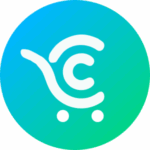Introduction: The Vital Role of Knowledge Management and Sharing in Modern Teams
In today’s fast-paced and collaborative work environments, effective knowledge management (KM) has become crucial for organizational success. Teams increasingly depend on shared information to spark innovation, boost productivity, and make informed decisions. The ability to capture, organize, and distribute knowledge effectively is more important than ever.
Knowledge management involves systematically handling an organization’s intellectual assets—such as documents, processes, expertise, and insights—to ensure that vital information is readily accessible and reusable. Seamless knowledge sharing fosters transparency, reduces redundant efforts, and accelerates onboarding of new team members. It also promotes continuous learning and adaptability, which are key drivers of competitive advantage in dynamic markets.
However, many teams face common hurdles when implementing KM strategies. Challenges like information silos, inconsistent documentation practices, and difficulties in locating relevant data can hamper efforts. Without a unified approach, important knowledge remains fragmented, slowing decision-making and risking loss when employees leave.
Fortunately, leveraging free tools for knowledge management can significantly address these issues. Open-source and no-cost digital platforms facilitate real-time collaboration, centralized repositories, and effortless sharing. They help organizations cultivate a culture of knowledge sharing without substantial financial investment—empowering teams to operate more efficiently and innovate constantly. In the sections ahead, we will explore how to utilize these tools effectively and adopt best practices for optimal team knowledge sharing.
Start Scaling Your L&D Today with Free Tools
Unlock the Potential of Free Tools to Revolutionize Your Learning Strategy!
Top Free Knowledge Management Tools for Teams
Effective knowledge management (KM) is essential for fostering collaboration, preserving information, and streamlining workflows within teams. Fortunately, several powerful free KM tools offer robust features tailored to enhance organization and teamwork without added costs. Here, we examine the most popular free solutions—Notion, Google Drive, and Confluence Free Tier—highlighting their core features, advantages, and best use cases.
Notion: Versatile Workspace for Customization and Flexibility
Notion is an all-in-one platform that combines note-taking, task management, databases, and collaboration in a single workspace. Its free plan is especially attractive for small teams and startups seeking adaptable knowledge sharing options. The block-based interface allows flexible content creation and organization, supporting everything from simple notes to complex project documentation.
- Customizable Templates: Access numerous free templates or craft your own for consistent documentation.
- Rich Media Support: Embed images, videos, links, and files directly within pages.
- Collaborative Editing: Multiple team members can edit and leave comments simultaneously, enabling real-time teamwork.
- Database Functionality: Create interconnected databases to manage tasks, assets, or contacts in a centralized manner.
Notion is ideal for teams that need a flexible platform combining documentation, project planning, and knowledge repositories. Its versatility makes it suitable for onboarding resources, project wikis, and content calendars, especially in creative or agile settings.
Google Drive: Streamlined File Storage and Collaborative Document Editing
Google Drive offers 15 GB of free cloud storage, seamlessly integrated with Google Workspace apps like Docs, Sheets, Slides, and Forms. Its main strength lies in straightforward document creation, easy sharing, and real-time editing, making it a cornerstone for cloud-based KM.
- Real-Time Collaboration: Multiple users can edit documents simultaneously with instant updates.
- Sharing Controls: Set permissions such as view, comment, or edit to manage sensitive information effectively.
- Version History: Track changes over time and revert to previous versions as needed.
- Integration: Connects smoothly with other Google services and third-party apps to improve workflow automation.
Google Drive is perfect for teams emphasizing document-based sharing—like meeting minutes, reports, or project documentation. Its ease of use and cloud accessibility make it suitable for remote teams and those new to KM systems.
Confluence Free Tier: Wiki-Driven Knowledge Sharing
Confluence by Atlassian provides a dedicated platform for creating, organizing, and sharing team knowledge through wiki pages. Its free plan supports up to 10 users, making it a practical choice for small teams needing structured documentation.
- Structured Content: Organize information hierarchically with pages, spaces, and labels.
- Templates: Use professionally designed templates for meeting notes, decision logs, and project plans.
- Integrations: Connect seamlessly with Jira, Trello, and other Atlassian tools for unified project management.
- Access Control: Manage permissions for viewing and editing content at various levels.
Confluence shines as a knowledge hub for onboarding manuals, policies, and technical documentation. Its collaborative and organized structure helps maintain comprehensive, easily searchable repositories.
🚀 Ready to See Paradiso LMS in Action?
Let’s show you how Paradiso LMS can work for you.
Best Practices for Implementing Free KM Tools Successfully
Implementing knowledge management (KM) tools can profoundly improve team collaboration, information sharing, and organizational efficiency. When deploying free KM tools, organizations should adopt strategic best practices to maximize their benefits while ensuring security and consistency.
1. Define Clear Objectives and Use Cases
Start by establishing specific goals for your KM tool deployment. Whether centralizing documentation, enhancing communication, or capturing organizational knowledge, clarity helps tailor setup and training. Conduct needs assessments to align features with workflows, avoiding unnecessary complexity.
2. Choose the Right Tool for Your Needs
Evaluate options based on user-friendliness, integration capabilities, scalability, and security. Select tools with proven reliability and active support communities to ensure long-term viability.
3. Develop Onboarding and Training Programs
Provide comprehensive training covering core features, best practices, and policies. Use tutorials, videos, and FAQs for self-paced learning. Identify knowledgeable team members as ambassadors to support adoption and engagement.
4. Standardize Workflows and Data Organization
Create guidelines for information structuring, naming conventions, tagging strategies, and version control. Consistent data management enhances discoverability and reduces duplication, maintaining knowledge accuracy.
5. Ensure Data Security and Privacy
Leverage platform permissions to restrict access to sensitive content. Regularly review user privileges and establish sharing policies to mitigate security risks.
6. Monitor Usage and Gather Feedback
Track how teams use the tools—identify high-engagement features and troubleshoot issues. Encourage feedback to refine workflows continuously. Analytics tools provided by some platforms aid in these insights.
7. Promote a Knowledge-Sharing Culture
Foster an environment that values information sharing. Recognize contributions, encourage collaboration, and emphasize the importance of maintaining updated content to ensure sustained engagement.
8. Conduct Regular Reviews and Maintenance
Schedule periodic audits to update, declutter, and optimize content and processes. Regular upkeep guarantees the KM system remains aligned with organizational needs and security standards.
By adopting these best practices, organizations can effectively leverage free KM tools, improving efficiency and fostering a culture of continuous learning. When seeking scalable, advanced features, solutions like Paradiso LMS can further enhance knowledge sharing, employee development, and organizational growth.
Overcoming Common Challenges in Knowledge Sharing with Free Tools
Effective knowledge sharing is fundamental to organizational growth, spurring collaboration, innovation, and ongoing learning. Yet, organizations often face challenges such as information overload and version control issues. Strategic use of free tools and integrations can help mitigate these obstacles, improving access management and boosting productivity.
Addressing Information Overload
A primary barrier to efficient sharing is the sheer volume of data that hampers quick retrieval. To combat this, create centralized and well-organized repositories.
Use free platforms like Google Drive or Microsoft OneDrive to develop structured folders with clear naming conventions and permission settings. These features facilitate easy discovery through search functions.
Additionally, tools such as Notion or Confluence enable categorization and tagging, making navigation intuitive and reducing cognitive load.
Managing Version Control Effectively
Version control issues can cause confusion and duplicate efforts. Free tools like Google Docs or Microsoft 365 (free plan) support real-time collaboration with automatic version history, allowing users to see changes and revert if needed.
For projects requiring detailed change tracking, free repositories like GitHub or GitLab are suitable, providing branch management, merging, and meticulous change logs—especially important for technical teams.
Optimizing Access and Management
Ensuring appropriate access levels is critical. Use permission settings in platforms like Dropbox or Box to control who can view, edit, or comment on content.
Connecting these tools with communication platforms like Slack or Microsoft Teams enables real-time updates and conversations around shared knowledge.
Automating workflows with free services such as Zapier or IFTTT can streamline updates and disseminate information seamlessly, keeping knowledge current and accessible.
In summary, combining strategic use of free tools with best practices in organization and security helps overcome common knowledge sharing hurdles. Creating an integrated ecosystem enhances transparency, collaboration, and trust across your team.
Enhancing Knowledge Management with Paradiso LMS
In today’s competitive business landscape, standard free KM tools can meet basic needs, but comprehensive platforms like Paradiso Learning Management System (LMS) transform knowledge sharing, employee training, and content management. Integrating Paradiso LMS into your KM strategy can streamline workflows, elevate employee development, and maintain organizational agility. This section explores how Paradiso LMS complements traditional tools and showcases real-world benefits through case studies.
Understanding KM Challenges and How Paradiso LMS Can Help
Managing knowledge involves gathering, organizing, and disseminating valuable assets. However, barriers such as fragmented repositories, low engagement, outdated content, and limited training hamper effectiveness. Paradiso LMS offers a scalable, user-friendly platform that addresses these issues by promoting active learning and centralized knowledge sharing.
The Role of Paradiso LMS in Supporting Content and Training
Key features include:
- Centralized Content Storage: Organize manuals, videos, and resources in one accessible location, reducing silos and ensuring consistency.
- Interactive Learning: Courses, quizzes, gamification, and certifications foster ongoing engagement and reinforce organizational knowledge.
- Personalized Learning Paths: Tailor training to roles or skills, enhancing relevance and efficiency.
- Robust Analytics: Track training progress and content engagement to identify knowledge gaps and improve initiatives.
Real-World Success Stories
Manufacturing Company: By adopting Paradiso LMS for onboarding and safety training, the firm reduced training time by 25% and achieved higher compliance rates. Analytics enabled targeted improvements.
Healthcare Provider: Leveraging interactive courses and certification tracking increased staff engagement by 40%, fostering a culture of continuous medical education.
Tech Startup: Using Paradiso LMS for product training improved support response times by 30% and enhanced customer satisfaction through up-to-date content management.
Unlock Seamless Knowledge Sharing Across Your Team – Start with Free Tools Today.
Empower Your Team with Effortless Knowledge Management – Try Free Tools Now!
Conclusion: Empower Your Teams with Affordable, Effective Knowledge Sharing Solutions
In today’s dynamic business world, effective knowledge sharing is vital to innovation, collaboration, and organizational agility. While free KM tools provide an excellent starting point—offering seamless access, transparency, and continuous learning—it’s essential to tailor these solutions to your team’s specific needs.
Carefully selecting the right tools—such as cloud storage, collaborative platforms, and wiki-based repositories—can significantly improve information flow, onboarding, and decision-making processes without straining your budget. These solutions promote a culture of shared expertise, reduce redundancies, and support remote or hybrid work environments.
For organizations seeking to advance beyond basic tools, scalable solutions like Paradiso LMS add value by enabling comprehensive content management, personalized learning, and performance analytics. They help build a resilient learning environment that adapts to organizational growth.
Ultimately, a strategic approach—combining free tools with targeted investments—empowers your teams to thrive, innovate, and stay competitive. Assess your organizational needs, explore reputable free options, and consider incorporating advanced platforms like Paradiso LMS to foster a smarter, more connected workplace today and into the future.

















